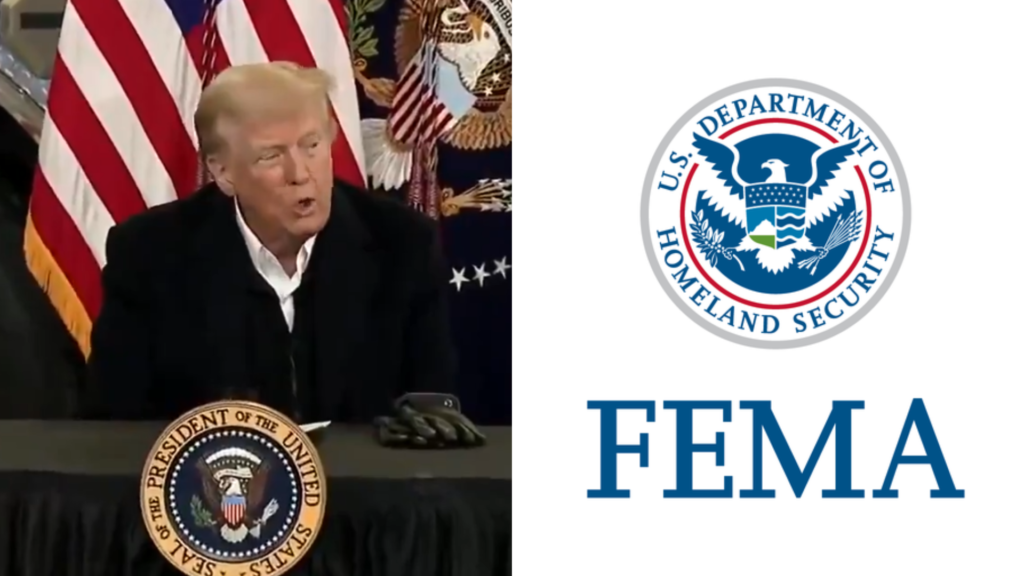
On Thursday, President Donald Trump announced his intention to sign an executive order to either reform the Federal Emergency Management Agency (FEMA) or dismantle it entirely.
Speaking at a press conference in Asheville, North Carolina—an area heavily impacted by Hurricane Helene—Trump expressed his dissatisfaction with FEMA’s performance and called for significant changes to the agency’s operations.
“I’ll be signing an executive order to begin the process of fundamentally reforming and overhauling FEMA, or maybe getting rid of FEMA,” Trump said. His visit came months after two hurricanes struck the region in quick succession, leaving behind widespread destruction and frustrated communities.
PRES. Trump: "I'll also be signing an Executive Order to begin reforming and overhauling FEMA, or maybe getting rid of FEMA." pic.twitter.com/c3hNYgPn55
— Resist Times (@resistupdates) January 24, 2025
During his remarks, Trump criticized FEMA’s response to natural disasters, arguing that state governments should take the lead in disaster recovery rather than relying on federal agencies. “I think, frankly, FEMA’s not good,” Trump said. “When you have a problem like this, you want to use your state to fix it—whether it’s a Democrat or Republican governor—and not waste time calling FEMA.”
The president’s comments reflect growing dissatisfaction among local residents and officials in North Carolina, many of whom have voiced concerns about FEMA’s inefficiency and heavy-handed approach. Some locals reported that FEMA’s policies restricted their ability to provide direct assistance to neighbors in need.
“They’ve never been to the area, and they want to give you rules that you’ve never heard about,” Trump said. “They want to bring people who aren’t as good as the people you already have. And FEMA’s turned out to be a disaster.”
Beyond operational inefficiencies, FEMA has also faced allegations of political bias in its disaster response. Reports surfaced that a FEMA employee was instructed to overlook homes displaying Trump campaign signs in Florida during Hurricane Milton’s aftermath. The justification for this directive was attributed to concerns that Trump supporters might be hostile toward FEMA personnel.
These allegations have further fueled criticism of the agency, with many questioning its impartiality and effectiveness. “This kind of behavior is unacceptable,” one local resident said. “Politics should never play a role in disaster recovery.”
While Trump’s remarks about potentially eliminating FEMA altogether have sparked debate, he emphasized the need for immediate action to address the agency’s shortcomings. His proposed executive order will aim to streamline disaster response processes and shift more responsibility to state governments.
Trump’s criticism of FEMA is part of a broader push to reduce federal bureaucracy and empower local communities. “We need solutions that work for the people on the ground,” he said. “FEMA has proven time and again that it’s not up to the task. It’s time to rethink how we handle disaster recovery in this country.”
As Trump moves forward with his plans, the debate over FEMA’s future is likely to intensify, with supporters and detractors weighing in on the agency’s role in disaster relief and its broader implications for federal-state relations.

